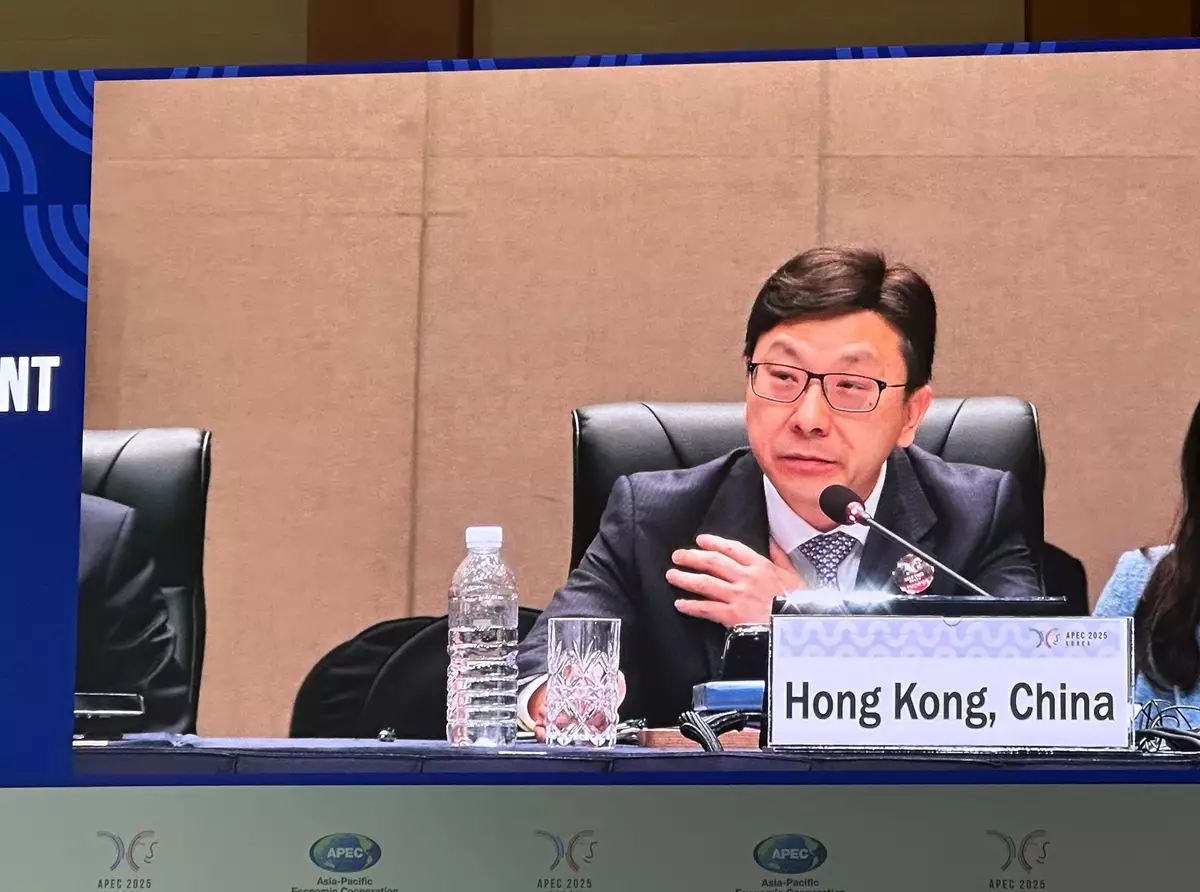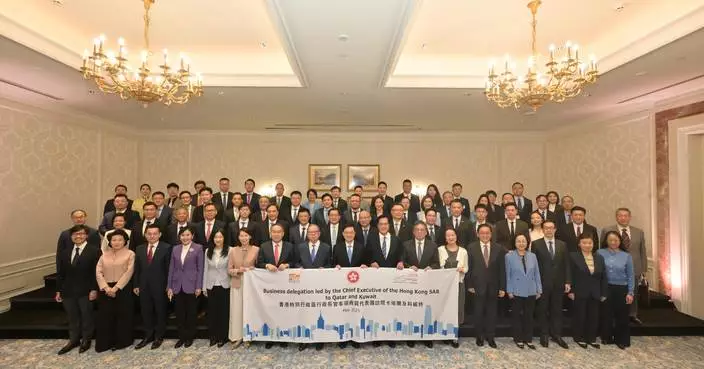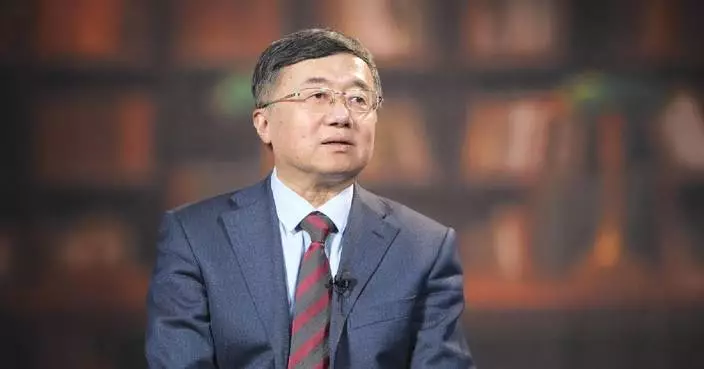Phishing messages related to WeChat Pay Hong Kong Limited
The following is issued on behalf of the Hong Kong Monetary Authority:
The Hong Kong Monetary Authority (HKMA) wishes to alert members of the public to apress releaseissued by WeChat Pay Hong Kong Limited relating to phishing messages. The relevant stored value facility (SVF) licensee has reported the case to the HKMA.
The HKMA wishes to remind the public that anyone who has provided his or her personal information or account credentials, or who has conducted any financial transactions, in response to the instant messages concerned, should contact the relevant SVF licensee, and report to the Police or contact the Anti-Deception Coordination Centre of the Police at 18222.

Source: AI-generated images
Speech by SLW at plenary session of Seventh APEC Human Resources Development Ministerial Meeting
Following is the speech by the Secretary for Labour and Welfare, Mr Chris Sun, at the plenary session themed "Flexible and Vibrant Labour Market" at the SeventhAsia-Pacific Economic Cooperation (APEC) Human Resources Development Ministerial Meeting in Jeju, Korea, today (May 12):
Good morning, chair and distinguished fellow Ministers.
Let me start off first of all by expressing my heartfelt gratitude to Korea for your warm hospitality and the very thoughtful arrangement over every detail this meeting. Flexibility and vibrancy have long been embedded in the DNA of Hong Kong, China. However, in the face of changing landscapes, we cannot stand still and must evolve and improve.
In a world where social media and artificial intelligence keep on reshaping the scope and meaning of work, it is all the more important for policymakers to focus on making employment more flexible, boosting labour productivity, and putting in place sustainable protection for workers. Today I will highlight Hong Kong, China's initiatives to address the challenges posed by the platform economy, and our efforts to enhance protection for employees across various sectors.
The platform economy is developing rapidly around the world. In Hong Kong, China, platform workers engaging in food and goods delivery services are common. Similar to other economies, their mode of co-operation with platform providers involves complex and various modes of work, which are not entirely akin to the traditional employment relationship.
Hong Kong, China attaches great importance to protecting the rights and benefits of platform workers. We have set up a tripartite liaison group to explore possible measures for strengthening protection for platform workers in collaboration with platform companies and labour organisations. We are glad to see that members of the liaison group are working together to forge consensus. The general directions are to enhance communication between platform companies and workers, increase the level of compensation for work-related accidents, and crack down on illegal workers. The aim is to enhance protection for platform workers through tripartite consultation while at the same time facilitating the sustainable development of the industry to achieve win-win outcome.
In parallel, the Government of Hong Kong, China has conducted a thematic household survey to collect major data of local platform workers. We have also conducted an opinion survey and focus groups among platform workers. Platform workers in Hong Kong, China are mostly concerned about the protection for work-related accidents and urged platform providers to provide them with protection comparable to the work injury compensation offered to employees in general. Capitalising on the work of the liaison group and the survey findings, we will map out the way forward within this year and enact necessary legislation once we have decided on the direction.
At the same time, we are addressing broad concerns through refining the scope of the Employment Ordinance in Hong Kong, China. At present, all employees covered by the Employment Ordinance are entitled to basic protection, including wage payment and granting of statutory holidays. Employees who are employed under a continuous contract are further entitled to benefits such as holiday pay, paid annual leave, sickness allowance, maternity leave, etc.
Under the current law, an employee is required to work at least 18 hours a week for four weeks in a row so as to remain engaged in continuous contract. This means an employee who occasionally works less than 18 hours in a week will fall short of the continuous contract requirement.
We have recently introduced legislative amendment to revise the threshold of the continuous contract requirement. First of all, we lower the weekly work hour threshold from 18 to 17 hours. More importantly, we make it clear that even if an employee works less than 17 hours a week, the continuous contract still remains valid if the aggregate work hours reach 68 hours or more in a designated four week period including the week in issue.
We expect that the legislative amendment will soon be passed into law. The expanded coverage of continuous contract will enable more employees with shorter and flexible work hours to enjoy full employment benefits. We believe the relaxation will also encourage more people to join the labour market.
Hong Kong, China is facing a shrinking workforce against our ageing population. To sustain the development of our workforce, we have been incentivising older people to rejoin the labour market and employers to hire older people.
First of all, we have introduced a Re-employment Allowance Pilot Scheme for three years. The aim is to encourage persons aged 40 or above who have not been employed for three months or more to work again. Eligible participants will be given an allowance of HK$10,000, which is equivalent to around US$1,300, if they remain employed for six months in a row. If they remain employed for a full year, they will receive an additional allowance of HK$10,000. Up to March this year we have received 38 000 participants with 16 000 placements recorded.
Turning to employers, we are rewarding those who hire and provide on-the-job training to older people. Eligible employers will receive a monthly allowance of HK$5,000 per employee per month for six to 12 months if they hire persons aged 60 or above. A smaller allowance and shorter period will be given to those employing persons aged 40 to 59.
To conclude, Hong Kong, China remains steadfast in its commitment to enhance the protection for the workforce and raise labour productivity. We will continue to explore innovative solutions and engage in meaningful and pragmatic dialogue with all stakeholders to create a fair and equitable labour market that empowers all individuals to thrive.
Thank you.

Speech by SLW at plenary session of Seventh APEC Human Resources Development Ministerial Meeting Source: HKSAR Government Press Releases


















































